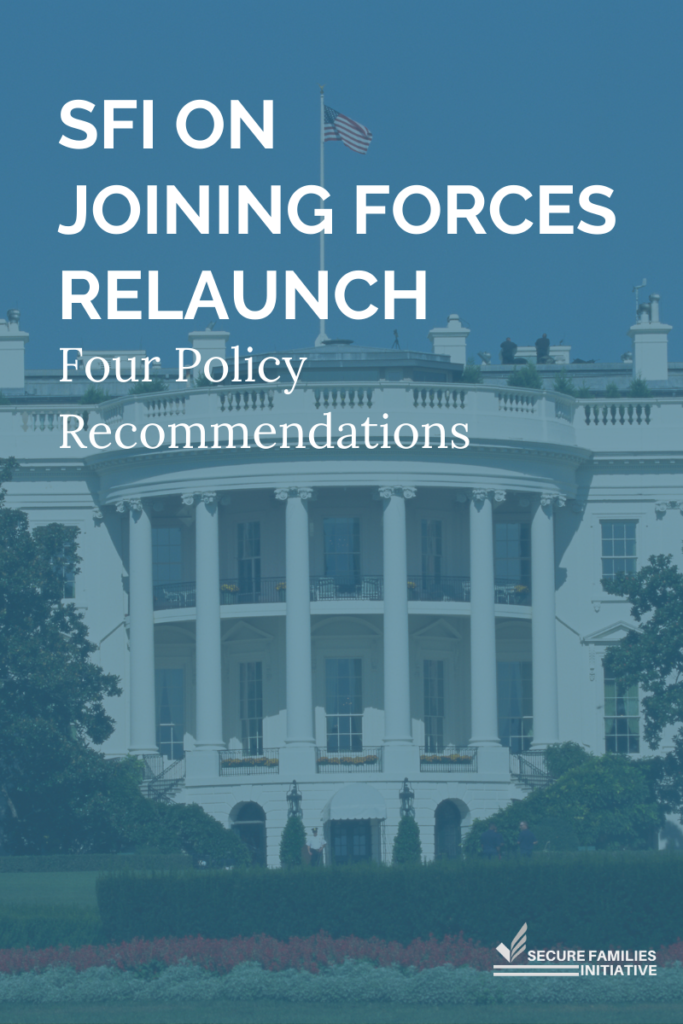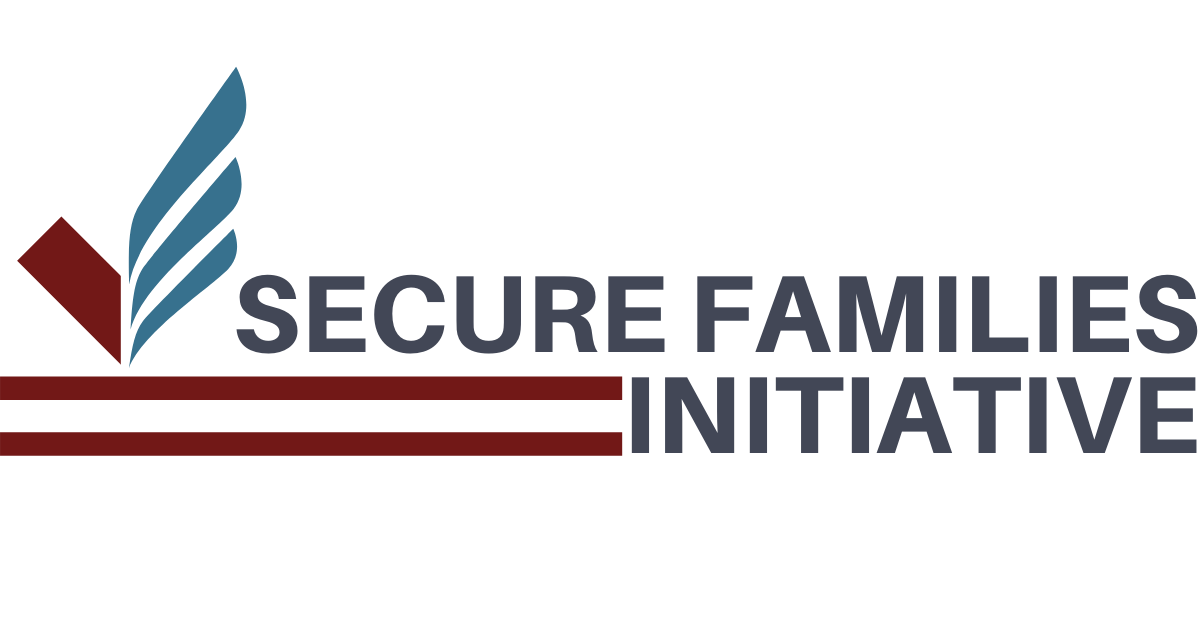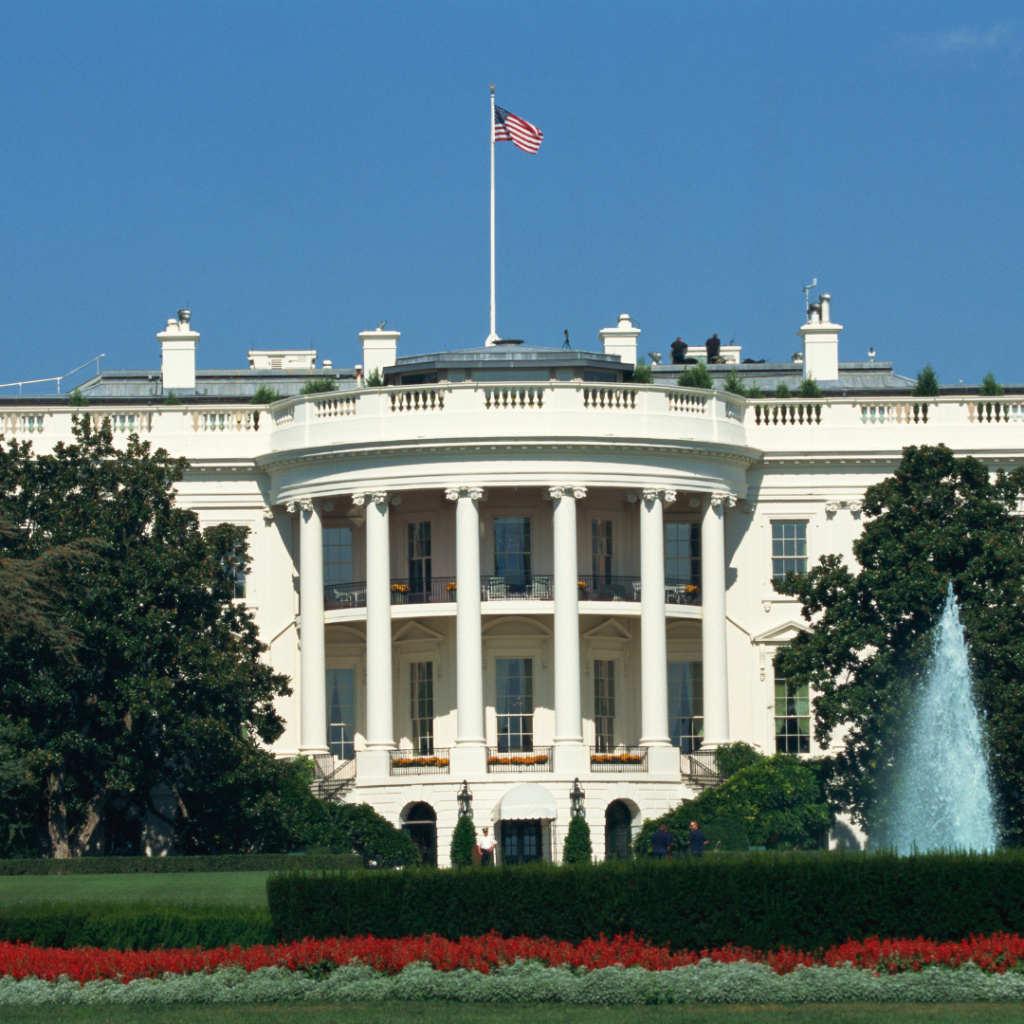Secure Families Initiative is honored and eager to take part in the Biden-Harris administration’s relaunch of Joining Forces. As Joining Forces starts to take its new shape, SFI is sharing four recommendations.
Last month we participated in a virtual listening session with First Lady Jill Biden. The Joining Forces platform will continue to serve as an extraordinary opportunity to elevate military families and their voices in public policy.
We believe military family issues are best understood in the context of our two-decades-long war posture.
Many of the unique challenges facing military families have been exacerbated by the intense wartime operations tempo of the last two decades. Yet too often, we ignore the impact of this tempo on military families and talk about issues like spouse unemployment, childcare needs, and mental health crises as if they were happening in a vacuum. Not only does this approach undercut our ability to make actual progress on these issues, but it also inadvertently gives the wrong impression that these challenges are unpreventable.
We strongly urge the Joining Forces team to take a more comprehensive approach to solving military family challenges by engaging with the upstream causes in the following ways:
- Incorporate the appropriate contextual framing when presenting educational materials about military family issues.
- Signal support for national security policies that would reduce wars of choice.
We believe collaboration with national security policy experts will strengthen our work.
We are encouraged that Joining Forces is planning to intersect with the Biden-Harris administration’s broader domestic policy efforts where relevant. We strongly support a cross-sectional approach and collaboration to break down counter-productive silos between foreign and domestic policy priorities.
- We recommend that national security professionals from the Biden-Harris administration be included in relevant conversations. Veterans and military families are uniquely qualified validators that, if engaged, could amplify the administration’s existing efforts to build a U.S. foreign policy more responsive to domestic stakeholders.
We believe Joining Forces should promote civic engagement among military families, veterans, and those who support them.
Grassroots advocacy from military families on the ground has previously created a huge impact in the military advocacy landscape. One notable example was the grassroots storytellers who are widely credited with gaining the repeal of the Widow’s Tax in 2019.
- Joining Forces is more likely to achieve its policy goals if we encourage military families to get involved alongside us in the fight.
- In addition to mobilizing individuals to advocate for our issues, we should also promote existing civic engagement training resources, including SFI and other partners such as Homefront Rising.
We believe Joining Forces should defend and advance access to absentee voting methods for military families.
Absentee voting (both by mail and other electronic methods) has come under unprecedented attack nationally. Yet military families rely heavily on these mechanisms in order to stay connected to elections from wherever they may be stationed.
- Joining Forces should take steps to educate the public on the nature of military voting.
- Further, the organization should look for opportunities to support legislation that would reinforce those rights.


